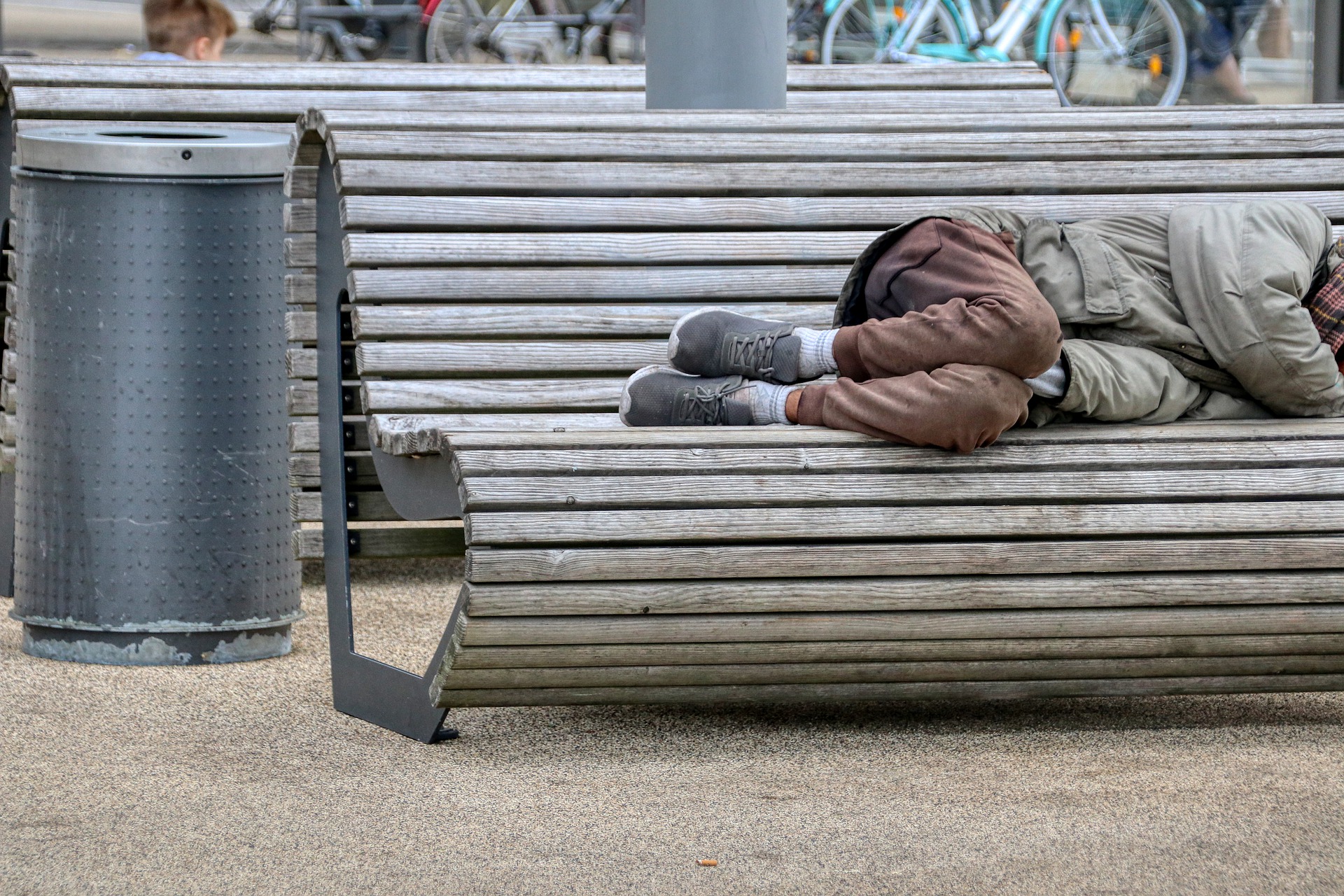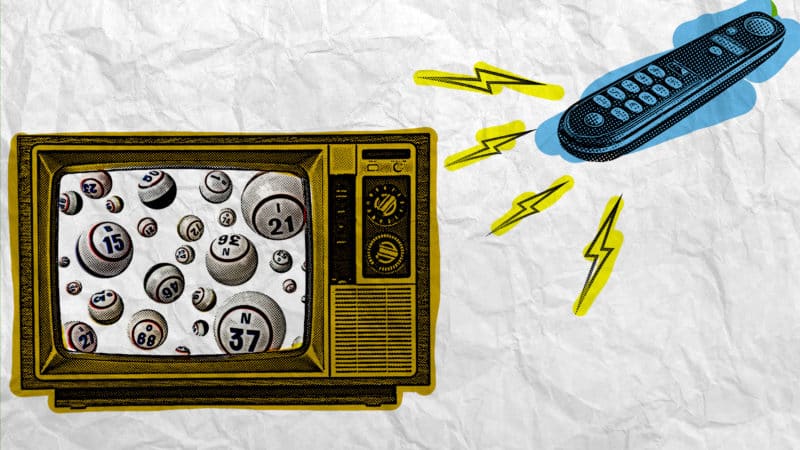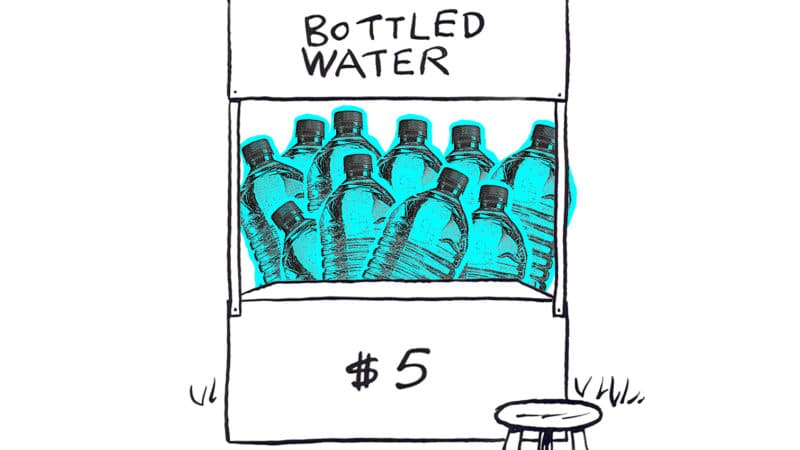By Mary Stewart
Whenever I’m standing out there on the sidewalk or median with my tattered cardboard sign, attempting to scrape up enough money for survival, I have people either scream at me to get a job, or tell me which local businesses were hiring. Some people even tell me that if I want help, then I have to help myself. Eventually, I started to believe this — that employment was the solution to my predicament. But a job alone is not enough.
I’ve been classified as being disabled ever since early childhood, diagnosed with high functional autism and bipolar disorder, and have received Supplemental Security Income (SSI) benefits since I was eight years old. I could never accept the fact that I was disabled though, I was always determined to beat the odds and become self-sufficient. After all, SSI isn’t even enough to afford rent in Palm Beach County, let alone utilities.
So, when I went into a local McDonalds for a cup of coffee after having spent the night sleeping behind a nearby bush, and the manager offered me a job, I was elated. It wasn’t long, though, before I had to acknowledge the challenges of attempting employment while experiencing homelessness.
First, hygiene can be a major barrier. Even though local ministries offer showers for the homeless, it is impossible to be in two places at once.
I have often missed out on lunch at soup kitchens and services through homeless ministries because I had to be at work or school. Sure, a paycheck does provide funds for a homeless person to purchase food, but I have no way to cook for myself, eating out gets expensive, and it’s unrealistic for a person to wait until payday to afford a hot meal.
Fortunately, McDonalds did offer free lunch for employees, but I only lasted at that job for a month due to my living situation and mental health issues. It took a lot out of me to wake up at 6 a.m. for work when my medication makes me drowsy.
I ended up hospitalized from my mental health and subsequently lost that job. Since then, I have briefly worked at a scrapbook store and as a self-employed freelance writer while homeless, but neither position offered free lunch, and, once again, I struggle to make it to homeless ministries while trying to balance work and school.
Many people assume that homeless people are too lazy to get a job, and that we’d rather drink beer all day and mooch off the kindness of others rather than seek employment, but that’s far from the truth.
I actually have a legitimate excuse to not work being legally disabled, and yet I’m still attending college full-time and attempting to earn some money despite being homeless. While most of my homeless friends haven’t had my level of determination, almost all of them desire employment and a better life. But there are barriers to making that dream become a reality.
Although not all homeless people struggle with substance abuse, many of us do. While alcoholism and addiction don’t necessarily make people lazy, these issues can inhibit employment.
When a person wakes up with the shakes every morning from alcohol withdrawal, or becomes dope sick when they can’t obtain heroin or pills, it’s practically impossible for them to make it to work every day and wait until payday to have money in their pocket. If they do manage to get a job, they usually don’t hold onto it for long.
…men can go to work as construction laborers regardless of their appearance, but for a woman to work in an office, she needs to have her suit ironed and her hair and make-up done to look presentable…
While substance abuse treatment is the obvious solution, it is often difficult to access treatment in Florida without private insurance or funding.
For some homeless addicts, employment is not the ideal solution to their situation anyways. One friend of mine, who prefers to go by Rojo, said that when he has gone into halfway houses in Florida, they wanted him to get a job immediately, but he needs to have his addiction under control before he’s able to manage a regular paycheck or he’ll relapse.
He’s originally from Kentucky where there’s emergency shelters, soup kitchens, and free substance abuse treatment, which he has found to be a more effective approach.
As to hygiene, my friend Jane agrees that it can be a barrier, especially for women.
She has a college degree and worked as an accountant for many years prior to experiencing homelessness. She told me once that men can go to work as construction laborers regardless of their appearance, but for a woman to work in an office, she needs to have her suit ironed and her hair and make-up done to look presentable enough for the job. Fortunately, she relocated and is now residing in a transitional apartment.
Many of my friends haven’t been able to work day labor though, or even restaurant jobs. Shoes are a must-have for employment, and many day labor positions require work boots, and restaurants require black slip-proof shoes — both of which can be unaffordable.
Transportation to work is yet another barrier.
In Palm Beach County, bus fare is $5.00 for an all-day pass, unless you are approved for the transportation disadvantaged program, which provides $15.00 monthly passes for those who are low-income. Most of my friends would be content with a bicycle though.
Unfortunately, many homeless people also have the issue of lacking proper legal identification to obtain employment.
Personal possessions are often lost or stolen repeatedly while a person is sleeping outside or in temporary residences. While a Florida ID can be replaced free of charge with a Homeless Declaration, Social Security cards are another story. There’s a relatively new policy that a person can only receive 10 Social Security cards per lifetime — with few compelling exceptions — and I am one of the unlucky people who’ve already reached that limit.
Many homeless people, myself included, also have criminal records, a well-known barrier to employment. No, this doesn’t necessarily mean that homeless people are ex-cons or hard-core criminals, but it’s common for the homeless to have a series of minor offenses — such as panhandling — on their record.
One man I know was denied a job at Walmart due to a misdemeanor conviction from ten years prior, and I’ve been repeatedly denied positions as I couldn’t pass a managerial background check, which is more extensive. It can also be challenging for the homeless to explain gaps in employment history.
Rarely, you may meet a homeless person who has managed to overcome employment barriers, such as my friend whom I’ll refer to as Bigfoot — an experienced contractor, despite his homelessness.
He continues to complete remodeling jobs for customers, even though he doesn’t have a work truck or place to live. I asked him how he does it, and he said, “If you do a good job for a good price, customers will pass your number around like candy.” His advice to those who lack his experience is simple: “Just work hard and do your best.”
While that is sound advice, I have found it to be extremely challenging to work and attend college while homeless, especially with the tougher panhandling laws and inadequate homeless resources in Palm Beach County. Instead of getting daily meals at Boca Helping Hands, I spend my days on campus or at the public library writing articles and studying. I often go hungry while awaiting payment and am left with no option except for panhandling.
Recently, I experienced my first panhandling arrest and spent twelve hours in a cold cell, simply for asking for help. Sadly, if I wasn’t working and going to school, I would be able to eat every day without panhandling. There’s help at places like Palm Beach’s Lewis Center — where the county’s homeless services are — but they require paperwork to prove my homelessness from shelters like Changing Hands of Boca, who in turn require me to attend their services almost daily.
What ever happened to help being provided to those who help themselves?
I will likely be withdrawing from college and relocating to get out of this situation, but I would like to leave readers with these words: hearts need to change, services need to be improved, and the homeless need to have the resources, support, and items that they need to better their lives. I’m not saying that employment is impossible for homeless people, but it is a challenge.
I hope that more people will begin to reach out and provide a hand to the homeless, instead of judging us and telling us to just get a job. It really isn’t that simple.



